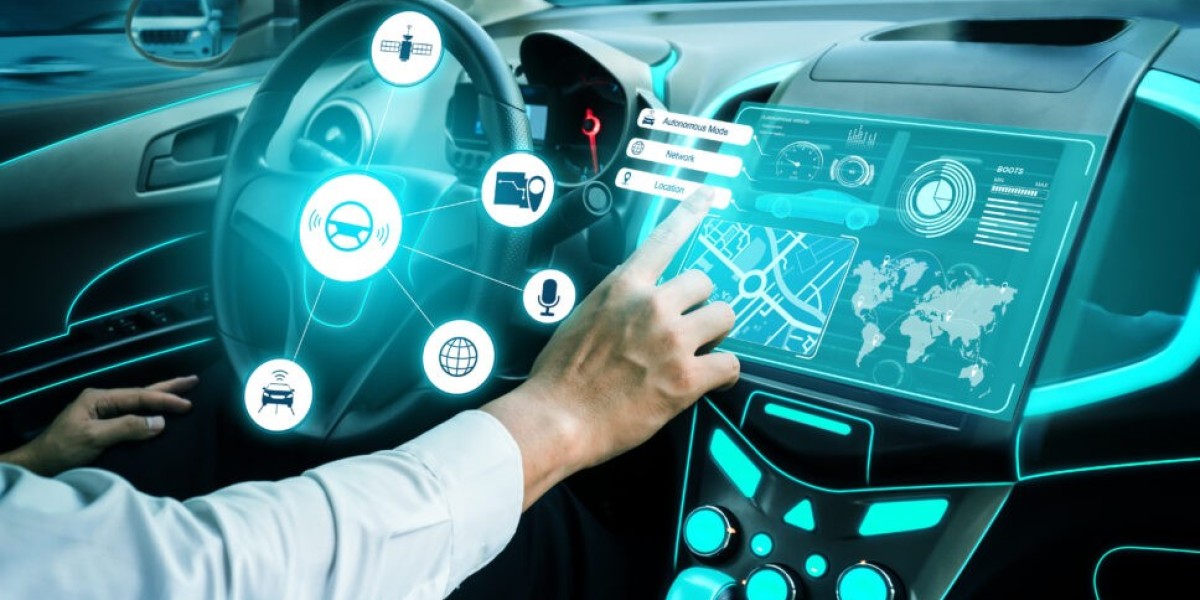Automotive Digital Cockpit: Revolutionizing the Driving Experience
In the ever-evolving world of automotive technology, the digital cockpit has emerged as a groundbreaking innovation, revolutionizing the driving experience. As an industry leader in cutting-edge automotive solutions, we at MRFR are proud to present an overview of the Automotive Digital Cockpit Market. In this article, we will delve into the intricacies of digital cockpits, explore their features and benefits, and highlight why they are poised to reshape the future of driving.
Understanding the Automotive Digital Cockpit
The automotive digital cockpit represents a paradigm shift in the way drivers interact with their vehicles. Gone are the days of traditional analog displays and knobs. The digital cockpit seamlessly integrates advanced technologies to create an immersive and intuitive interface for drivers. It combines various electronic systems, including instrument clusters, infotainment systems, and connectivity features, into a single unified platform.
Key Features and Functionalities
- Advanced Instrument Cluster: The digital cockpit replaces conventional analog gauges with high-resolution, customizable digital displays. These instrument clusters provide real-time information such as speed, fuel level, navigation, and safety warnings, enhancing situational awareness for drivers.
- Infotainment Integration: With the integration of infotainment systems, digital cockpits offer a wide array of entertainment and connectivity features. Drivers can access navigation, media, smartphone integration, and other applications through a user-friendly interface, ensuring an enjoyable and convenient driving experience.
- Augmented Reality (AR) Head-Up Display (HUD): AR HUD technology projects vital information, such as speed limits, navigation instructions, and collision warnings, directly onto the windshield. This minimizes distractions and keeps drivers focused on the road ahead, enhancing safety.
- Voice Recognition and Natural Language Processing: Digital cockpits employ advanced voice recognition and natural language processing technologies. This allows drivers to control various functions using voice commands, creating a hands-free and safer driving environment.
- Smartphone Integration: With seamless integration of smartphones, drivers can access their favorite apps, make calls, send messages, and stream music directly from the digital cockpit interface. This integration enhances convenience and connectivity while keeping the driver's attention on the road.
Benefits of Digital Cockpits
- Enhanced Safety: Digital cockpits provide real-time information, reducing the need for drivers to divert their attention from the road. With intuitive interfaces and advanced safety features, they promote safer driving practices.
- Customization and Personalization: The flexibility of digital cockpits allows drivers to customize their driving experience according to their preferences. From layout and color schemes to information displayed, drivers can tailor the digital cockpit to suit their needs.
- Improved User Experience: The user-centric design of digital cockpits prioritizes ease of use and accessibility. With intuitive interfaces and simplified controls, drivers can navigate through various functions effortlessly, enhancing their overall driving experience.
- Future-Ready Technology: Digital cockpits serve as a foundation for future technological advancements. They are equipped to integrate emerging technologies such as autonomous driving, artificial intelligence, and advanced driver assistance systems (ADAS), making them future-proof investments.
Market Outlook and Growth Potential
The global automotive digital cockpit industry is experiencing remarkable growth, driven by increasing consumer demand for advanced in-car technologies. According to industry reports, the market is projected to witness substantial expansion in the coming years, with a CAGR of 9.50% during the forecast period.
This growth can be attributed to several factors, including:
- Rising consumer expectations for seamless connectivity and digital experiences.
- Increasing adoption of electric and autonomous vehicles.
- Advancements in display technologies, including OLED and curved displays.
- Growing emphasis on driver safety and comfort.
Conclusion
The automotive digital cockpit represents the next frontier in automotive innovation, transforming the way we interact with our vehicles. With its advanced features, intuitive interfaces, and future-ready technology, the digital cockpit is set to redefine the driving experience. As a leader in the industry, MRFR remains committed to delivering cutting-edge solutions that elevate the automotive digital cockpit market to new heights.
Related Report:
electronic braking system in cars







